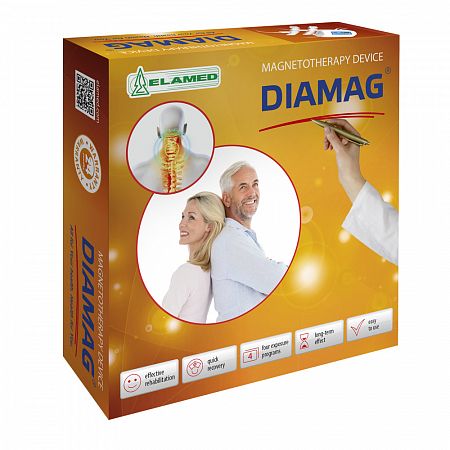Using TMS Machine for Enhanced Quality of Life in Parkinson’s Disease Patients
Living with Parkinson’s disease is a journey marked by unique challenges that extend beyond the individual diagnosed with the condition. The impact of Parkinson’s resonates throughout the lives of both patients and their families.
However, emerging treatments offer hope for improved quality of life. One such promising approach is Transcranial Magnetic Stimulation (TMS), a noninvasive and gentle technique that shows potential to alleviate symptoms and enhance well-being in Parkinson’s patients.

In this blog, we will explore how transcranial magnetic stimulation machines help treat Parkinson’s Disease.
Understanding Parkinson’s Disease
Parkinson’s disease, a progressive neurodegenerative disorder, profoundly impacts movement control as it results from the gradual loss of dopamine-producing cells in the brain.
This intricate process results in weakening symptoms such as tremors, muscle stiffness, and challenges in maintaining balance and coordination, significantly impinging on the daily life of those affected by this condition.
Benefits of Transcranial Magnetic Stimulation machines in treating Parkinson’s disease
Transcranial Magnetic Stimulation (TMS) machines have shown promising benefits in the treatment of Parkinson’s disease, offering a noninvasive and innovative approach to managing the symptoms associated with this neurodegenerative disorder.
1. Alleviating Motor Symptoms
TMS has demonstrated efficacy in alleviating motor symptoms commonly associated with Parkinson’s disease, including tremors, stiffness, and impaired motor control. By modulating neural activity in specific brain areas, TMS provides a targeted and non-pharmacological intervention, relieving individuals struggling with these debilitating motor challenges.
2. Enhancing Quality of Life
Using TMS machines contributes to an improved quality of life for Parkinson’s patients. As motor symptoms are mitigated, individuals find themselves better able to engage in daily activities, fostering a sense of independence and well-being. This enhanced quality of life extends beyond the physical realm, positively impacting emotional and psychological aspects.
3. Noninvasive Nature
A significant advantage of TMS in Parkinson’s treatment lies in its noninvasive nature. Unlike surgical interventions, TMS eliminates the need for incisions or anesthesia, minimizing the associated risks and discomfort. This makes it a more accessible and tolerable option for individuals who may be opposed to or ineligible for invasive procedures.
4. Complementary to Existing Therapies
TMS can be seamlessly integrated into existing treatment regimens for Parkinson’s disease. Whether used with medication or physical therapy, TMS complements standard therapies, providing a comprehensive and multi-faceted approach to symptom management. This versatility allows healthcare professionals to tailor treatment plans to each patient’s unique needs.
5. Targeted Neural Stimulation
TMS devices precisely target specific areas of the brain, offering precision in neural stimulation that is particularly advantageous in addressing the diverse symptoms of Parkinson’s disease. This targeted approach enhances the effectiveness of the treatment, minimizing side effects and maximizing therapeutic benefits.
6. Potential for Mood and Cognitive Improvement
Emerging research suggests that TMS may alleviate motor symptoms and contribute to improvements in mood and cognitive function in Parkinson’s patients. This holistic impact on brain activity hints at the potential of TMS to address the broader spectrum of challenges associated with the disease.
How To Find The TMS Machine for Sale
1. Specialized Websites
Start looking for a TMS machine on websites that specifically sell medical equipment. These websites are made for healthcare needs and have a lot of different TMS devices. Use the search bar and type “TMS machine for sale” to find the right listings easily.
2. Online Marketplaces
Explore big online marketplaces where people sell medical stuff. Compare prices from different sellers to find the best deal. Look for a TMS machine that fits your budget and has all your desired features.
3. Direct Inquiries
Ask companies that make or sell medical equipment directly about TMS devices. Reach out to them and learn about their prices and models. Talking to them can help you get the latest info and choose the right TMS machine.
4. Specification Check
Before you buy a TMS machine, check if it has everything you need. Look at the technical details, see if it works with your other equipment, and make sure it has the desired features. This way, you get a TMS machine that fits well into your setup.
5. Community Insights
Learn from what others say online. Search for reviews or ask on forums where people talk about medical equipment. This can give you a better idea of what TMS machines are good and where to buy them.
6. Cost Comparison
Make sure to compare tms machine cost from different places. Look for any extra costs and check if there are any special offers or warranties. This helps you find a good deal on a TMS machine that matches your budget.
Conclusion
Transcranial magnetic stimulation emerges as a gentle yet powerful ally in the quest for improved quality of life for people with Parkinson’s disease. With its ability to target specific areas of the brain associated with motor control, mood, and cognition, TMS opens new possibilities for individuals living with Parkinson’s and their families.
Almagia offers Almag-03, a transcranial magnetic stimulation machine, that uses magnetic fields to stimulate nerve cells in the brain. This device is effective in treating Parkinson’s disease, migraine, and much more. Visit our website to buy tms machines now!
from almagia https://ift.tt/fHEeIcZ
Comments
Post a Comment